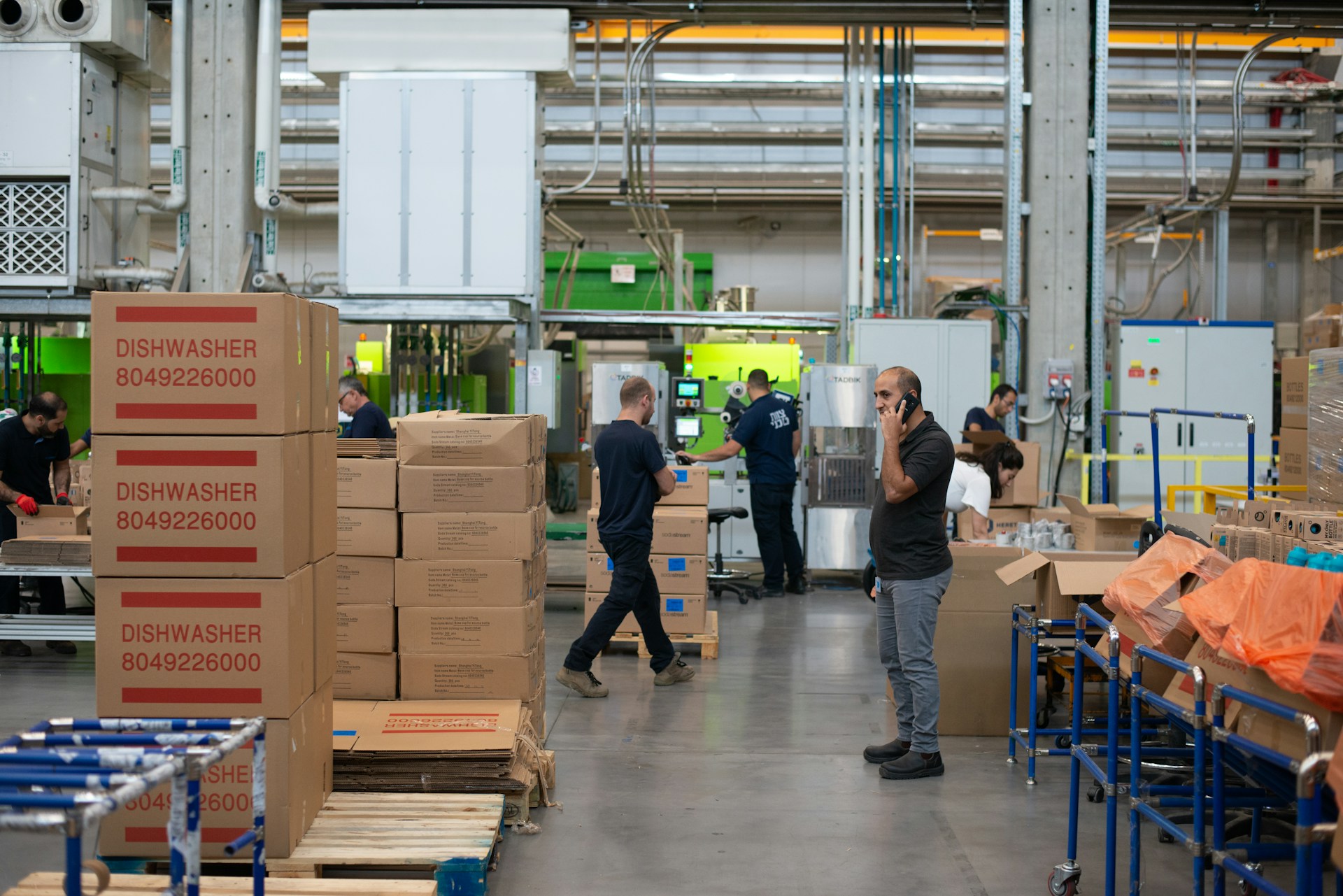Understanding legal parameters within the agro-industrial space is paramount for any stakeholder aiming for business sustainability.
Consequently, it becomes particularly essential for those involved in packing and distributing fresh produce.
The nuanced realms of law surrounding this sector are often complex, necessitating a clear grasp to avoid any potential pitfalls.
This article aims to elucidate these pressing legal considerations.
From compliance with food safety regulations to intellectual property rights, several key domains will be discussed in detail.
We invite you to delve deeper and navigate through the intricate landscape of the law.
Key Legal Considerations For Produce Packers
1. Compliance with Local, State, Federal Packing Laws
The importance of compliance with local, state, and federal packing laws cannot be overstated when it comes to legal considerations for produce packers.
These regulations serve to protect not only the consumer, but also the workers involved in the packing process, ensuring that standards of quality, safety, and hygiene are maintained.
It is crucial for produce packers to have a thorough knowledge of these laws and to consistently apply them throughout all stages of production.
The local, state, and federal packing laws serve as a guideline for packers to ensure the safety, cleanliness, and quality of the produce.
Non-compliance with these laws can result in severe penalties, including but not limited to fines, temporary or permanent closure of operations, and legal action.
On the other hand, compliance demonstrates a company’s commitment to their consumers’ welfare, which can significantly enhance its reputation.
Every jurisdiction may have slightly different packing laws and it is incumbent upon the produce packer to adapt their operations accordingly.
For example, the regulations controls may be about the materials used for packing, methods of packing, standards of hygiene and sanitation, and even the disposal of packing waste.
An important facet of complying with these laws is accurate and transparent documentation.
Often, this involves keeping detailed logs of packing processes and practices, along with associated paperwork such as licenses, permits, and certifications.
These documentation not only serve as proof of compliance, but are also useful reference materials for troubleshooting anomalies and implementing improvements in the packing process.
The responsibility of compliance rests with every employee, be it the packing worker, the warehouse supervisor, or the business owner.
As such, employees should receive regular training and updates regarding packing laws and their implementation, and this responsibility should be included in contracts and job descriptions.
Utilizing legal advisors, industry consultants, or compliance software can aid produce packers in their compliance efforts, helping to interpret complex regulations, identifying instances of non-compliance, and suggesting corrective action.
In summary, complying with local, state, and federal packing laws is a fundamental part of running a successful, responsible produce packing operation.
By staying updated with regulatory changes, implementing robust compliance systems, and fostering a culture of accountability and excellence, produce packers can leverage these regulations as a powerful tool to propel their business forward and ensure the safety and satisfaction of their consumers.
2. Maintaining Proper Health and Sanitation Practices
In the packing industry, it is of utmost importance that proper health and sanitation practices be prioritized in daily operations.
These practices not only ensure the quality and safety of the produce, but also the well-being of consumers and employees involved in the process.
This involves adhering to strict protocols for cleaning and disinfection, waste management, and pest control.
Regularly cleaning and disinfecting surfaces and equipment helps prevent build-up of bacteria and other pathogenic microorganisms that can contaminate the produce.
For this reason, schedules must be set for routine cleaning and sanitation measures.
Improper waste disposal can attract pests, hence, garbage and other waste materials should be disposed of properly and frequently.
Pest infestations can pose serious threats to the safety of the produce as pests like rodents, insects, and birds can serve as vehicles of disease transmission.
A comprehensive pest management plan should be implemented to mitigate potential pest-related risks.
Food handlers must maintain a good level of personal hygiene to prevent cross-contamination between employees and the produce.
This means regular handwashing, wearing of proper work attire, and following hygienic practices when handling and packing the produce.
Moreover, the provision of adequate facilities and equipment is crucial in aiding employees in maintaining proper sanitation practices.
This includes regular maintenance checks and immediate repair or replacement of faulty equipment to ensure optimal working condition.
Training and education of employees about the importance of cleanliness and sanitation should be conducted regularly.
They should be made aware of the potential consequences of neglecting sanitation practices, not only to the produce and consumers, but to their health as well.
In line with this, it is imperative to keep a record of all sanitation procedures, for compliance with health inspections conducted by regulatory bodies.
This adherence to cleanliness and sanitation in the workplace greatly contributes to the overall quality of the produce, assuring consumers of its safety, and the business’s commitment to health and sanitation.
3. Correct Labeling for Potential Allergen Content
One of the most important responsibilities that produce packers have is the correct labeling of potential allergen content.
Governmental regulations mandate that all food products, including fresh produce, must clearly state if they contain any of the major allergens.
These allergens include milk, egg, fish, shellfish, tree nuts, wheat, peanuts, and soybeans, as designated by the Food Allergen Labeling and Consumer Protection Act (FALCPA).
This legislation also stipulates that if the food is processed in a facility where allergens are also processed, it must be declared on the label.
Consequently, packers must have a comprehensive understanding of their products and their production environments to ensure accurate labeling.
In the event of incorrect labeling, produce packers could face significant legal and financial consequences, including recalls, halted production, and lawsuits from consumers.
This helps protect not only the consumers but also the businesses from potential lawsuits.
Careful consideration must be given to the design and wording of labels to ensure they comply with all legal requirements.
The labels should be clear, visible, and easy to understand, even for those who may not be familiar with specific allergens or medical terminology.
The Food and Drug Administration provides resources and guides for businesses to help them understand the intricacies of labeling food products accurately.
Some businesses go a step further and have their labels reviewed by legal experts to ensure full compliance.
However, regardless of the methods employed, the responsibility of correct labeling lies solely with the produce packers.
Given the potential consequences, it is essential that packers not only comply but strive to exceed these requirements where possible.
This often involves additional training for their staff, regular reviews of their labeling procedures, and continuous improvements to their overall process.
By maintaining vigilance in this area, produce packers can help to protect consumers, minimize risks to their business, and uphold the integrity of their products and brand.
4. Proper pesticide usage and documentation
In the world of produce packing, one of the major legal considerations to bear in mind involves the proper usage and documentation of pesticides.
This requires having a thorough understanding of the various pesticide regulations put forth by both local and federal authorities.
Producers and packers are mandated by law to use only those pesticides that have been approved by the Environmental Protection Agency (EPA).
However, it is equally important that these pesticides are used in the correct manner, following all safety protocols.
Improper or excessive use of pesticides can not only have serious implications on the quality of the produce, but also lead to hefty fines and penalties.
Pesticide usage should be properly documented to help maintain a transparent system that can easily be audited for compliance.
The documentation process involves recording various details such as the type of pesticide used, the quantity, the date of application, and other relevant information.
These records are crucial as they provide an account of the pesticide usage and can serve as reference in case of disputes or investigations.
Similarly, packers need to understand that different crops may require different types of pesticides, and it is essential to use the right pesticide for each specific crop.
Moreover, they must be mindful of the re-entry intervals (the period after pesticide application when entry into the field must be limited) and adhere to them strictly.
The pesticide label, which is a legal document, must be followed to the letter as it provides guidelines regarding the proper usage.
Regular training and updating of knowledge regarding pesticide laws and handling practices is also crucial in ensuring legal compliance.
Remember, pesticides are toxic substances and mishandling them can lead to serious health consequences for workers and consumers.
Thus, ensuring proper pesticide usage and maintaining comprehensive documentation is not just about legal compliance, it is also about protecting public health and maintaining the reputation of the business.
Failure to comply with pesticide laws not only risks the health of people but also can turn out to be a costly mistake for the company in terms of fines and loss of business reputation.
5. Adherence to fair labor and employment laws
Following fair labor and employment laws is a crucial legal consideration for any business, including produce packers.
These laws exist to promote the fair and ethical treatment of employees and they encompass issues like compensation, labor conditions, and discrimination among others.
As a produce packing operation, understanding the details of these laws and ensuring compliance is not only morally right but also important for avoiding legal issues and penalties.
When produce packing operations fail to comply with fair labor laws, they often face severe penalties that could significantly impact their business.
Produce packers must be aware of specific laws like the Fair Labor Standards Act (FLSA) which governs issues like minimum wage, overtime pay, and record keeping, as well as child labor provisions in the United States.
Further, ensuring appropriate wage payment and providing overtime payment as mandated by law is an integral part of adhering to fair labor laws.
Produce packers should also be keen on preventing any form of discrimination in the workforce.
This includes avoiding discrimination based on race, religion, sex, or nationality as outlined in laws such as the Equal Employment Opportunity Commission (EEOC).
In addition, maintaining a safe and healthy working environment is a part of complying with the Occupational Safety and Health Administration (OSHA) rules.
Employees should be offered appropriate training and safety gear to avoid accidents and injuries.
Furthermore, produce packers should also have systems in place for employees to report any violations or concerns without fear of retribution.
A robust system for handling employee grievances is a crucial aspect of maintaining fair labor practices.
Labor laws may vary greatly depending on the area, and it’s important for produce packers to understand the specific laws relevant to their location.
Engaging the services of a knowledgeable employment law professional who can guide the business through the complexities of labor laws is a valuable step in ensuring compliance.
In essence, adherence to fair labor and employment laws should not be seen as an afterthought for produce packers.
Rather, it is a necessity not only for maintaining a good reputation but also for avoiding legal complications and fostering a healthy and productive work environment for all employees.
The Bottom Line
As a summation, navigating and adhering to the wide array of local, state and federal packing laws is crucial in preventing any potential violations that could jeopardize your business.
Equally significant is the implementation of robust health and sanitation practices, which ensure the safety and cleanliness of products reaching consumers.
Correct product labeling, particularly regarding potential allergen content, is not only a legal requirement but also a way to inform and protect consumers.
Moreover, businesses should strictly adhere to legal pesticide usage and maintain proper documentation to avoid any negative environmental impacts.
Lastly, observing fair labor and employment laws is central to maintaining an ethical workplace, thereby creating a conducive environment for workforce productivity.
Maintaining these excellent standards and practices is not just about compliance but ultimately about winning trust and maintaining an excellent reputation with clientele, employees and regulators alike.
This is, inarguably, the backbone of a well-functioning and successful enterprise.




